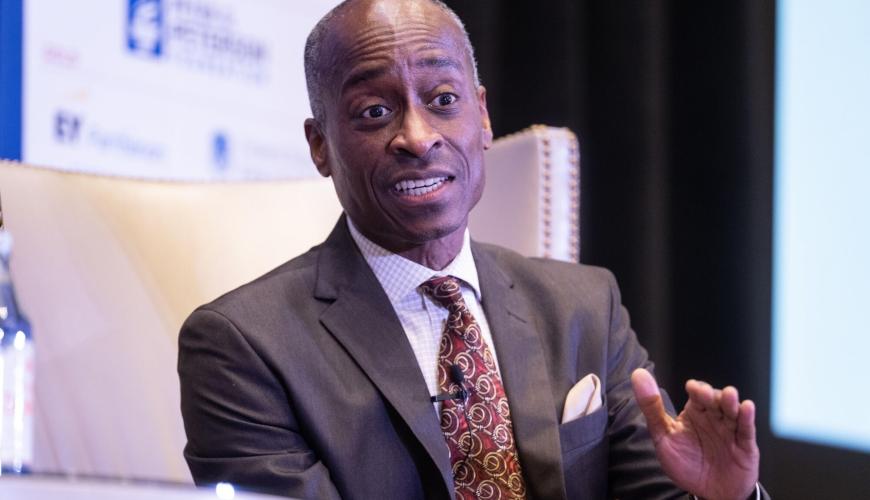Vice Chair Philip Jefferson's Cautionary Remarks on Overly Easing Rates Amidst Declining Inflation
- 23 February 2024 2:00 AM

Vice Chair of the Federal Reserve, Philip Jefferson, cautioned against excessive reduction in interest rates in response to declining inflation levels. According to him, this could potentially jeopardize the Federal Reserve's primary objective of price stability. He expressed this during a speech for the Peterson Institute for International Economics, where he stated, "We must always recognize the risk associated with overly easing in response to inflation improvements. Overzealous easing could stall or even reverse progress towards restoring price stability."
Despite the slight inflation increase in January, Jefferson displayed cautious optimism about decreasing inflation, with the probability of the Federal Reserve reducing interest rates later in the year. His comments align with other Fed officials' recent statements that suggest a non-aggressive stance towards lowering borrowing costs.
Speaking at a separate event on Thursday, Philadelphia Fed President Patrick Harker stated that premature rate cuts could compromise the progress made on inflation. He emphasized the need for tangible evidence indicating that price pressures are broadly declining. Harker, a non-voter on policy decisions, did suggest a possible rate decrease in the year, urging caution against expecting immediate reductions. He emphasized a measured approach stating "We have time to get this right, as we must."
Jefferson outlined three potential risks to the economy's outlook in his Thursday address. He expressed concern that the economy may witness unexpected resilience in consumer spending, which could curb progress on inflation. Additionally, conflicts in the Middle East could disrupt oil and other commodity markets. Lastly, employment rates are susceptible to weakening as growth recedes.
Emphasizing the necessity to adjust policies in response to changing economic conditions, he warned that the labor market can alter dramatically. He also stated that rates cuts would not necessarily need a growth scare, and that he would review the “totality of the data in the economy” when assessing policy direction.
Citing prevention of policy swings in opposite directions, which could foster economic uncertainty, making decision making difficult for households and businesses. Jefferson laid emphasis on the importance of policy flexibility. He iterated historical instances of policy easing, emphasizing adaptability in implementing policies.
He discussed former Fed Vice Chair Alan Blinder's description of the "perfect soft landing" of the economy in the mid-1990s. Here, the Federal Open Market Committee began reducing rates as concerns surrounding inflation decreased, then maintained them for three meetings before recommencing cuts.
While Fed officials generally agree on the peaking of interest rates, there seems to be no rush to decrease them, as seen in minutes from their last meeting in January. This cautious approach was largely backed by data released subsequently.
Markets have significantly reduced expectations of rapid rate cuts as a result. According to the federal funds futures market, traders are now betting the Fed will first lower rates in June. Investors also expect three to four cuts in 2024, a pace more in line with policymakers' median projection in December.
Ahead of their meeting on March 19-20, Fed officials will update their projections for rates and the economy. Powell will offer fresh thoughts on the outlook when he testifies before Congress in early March.
